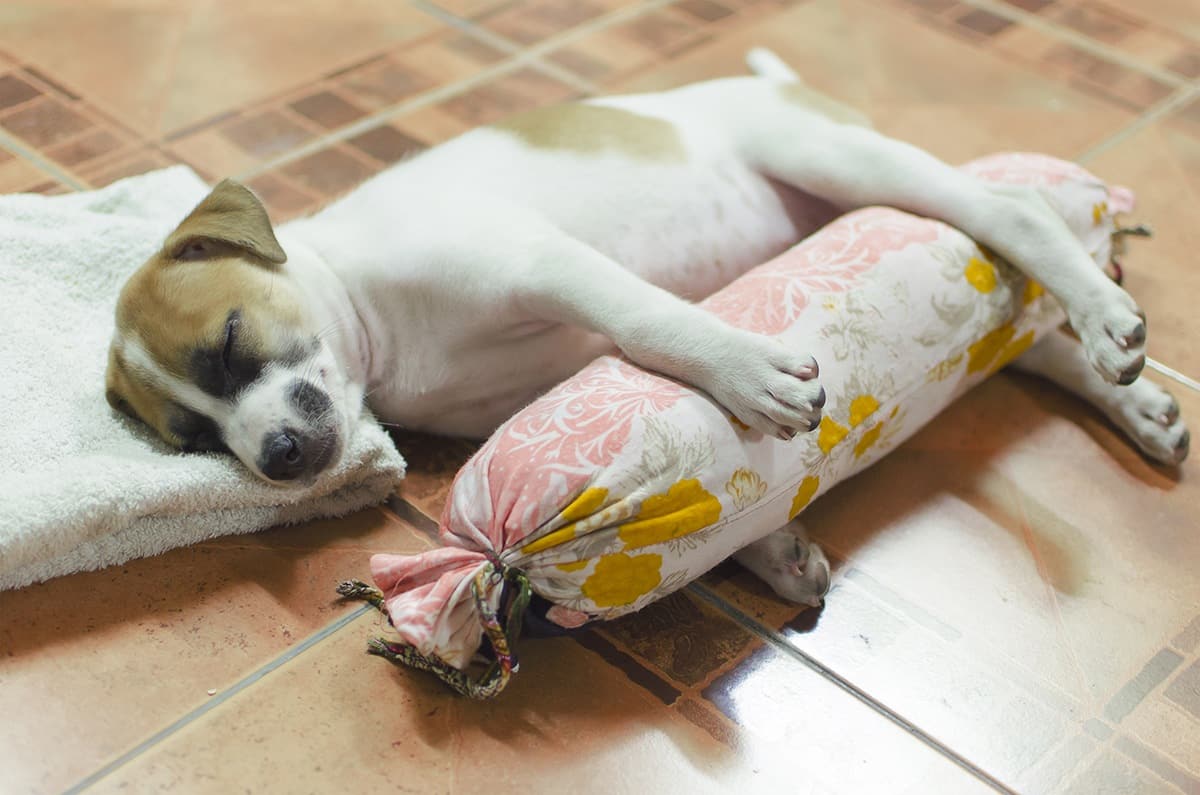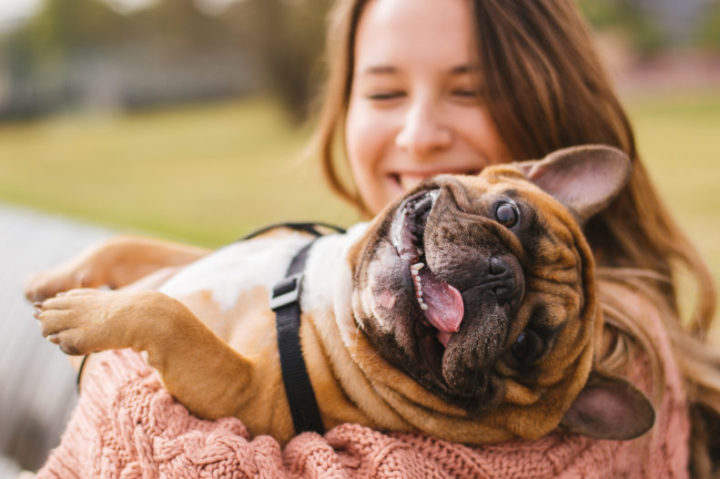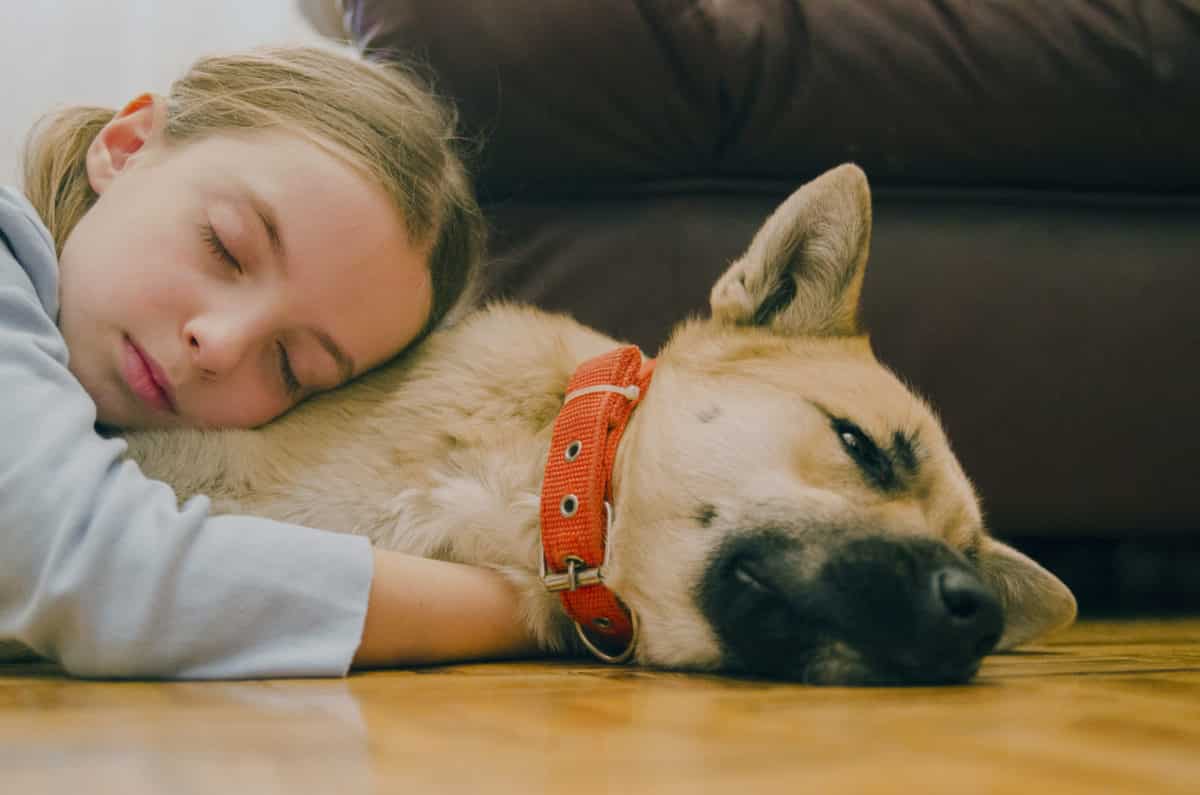In between brief spurts of zoomies, dogs spend most of their days lounging and relaxing. You’ve probably noticed that your pup dozes a lot more than you do, but how much sleep do dogs need?
The answer isn’t cut and dry. We consulted veterinarians and examined the research in order to help you determine whether your dog is getting the optimal amount of Zzzs each day.
How Many Hours a Day Do Dogs Sleep?
Canine sleep habits vary depending on several factors. Age plays a significant role. Just like teenagers need more sleep than adults, puppies need more rest than full-grown dogs. Some dog breeds tend to sleep more than others due to their size and activity level. You also can’t forget about health factors; if a dog is suffering from an infection, they’ll need more sleep as they recover.
How Much Sleep Your Dog Needs By Age
First, let’s examine how much sleep dogs need depending on their age.
Puppies
Even though they’re known for their energy and playfulness, puppies need about 18-20 hours of sleep every day. “Puppies typically have two modes: asleep and playing,” said Dr. Jamie Whittenburg (DVM), veterinarian at SeniorTailWaggers.com. “As puppies, dogs tend to sleep more total hours in a day, but not long stretches like their adult counterparts.”

Adult Dogs
Adult dogs spend about 50% of their day sleeping, or an average of 12-14 hours in a 24-hour period. In addition to these power naps, adult dogs typically spend about 30% of their day just lounging and relaxing. That means adult dogs spend about 80% of their day not doing much at all (must be nice!).
Senior Dogs
Senior dogs typically need the same amount of sleep they got as puppies – about 18-20 hours a day. Because dog breeds have varying life expectancies, dogs are considered “seniors” at different times. Bigger dogs have shorter lifespans, so a Great Dane may be considered a senior dog at age five. Corgis, on the other hand, don’t reach senior status until they turn eight.
Breeds of Dogs That Need the Most and Least Amount of Sleep
Couch potato dogs, like bulldogs and pugs, tend to sleep longer than working and sporting dogs. But it’s not just lifestyle that impacts the amount of sleep each breed needs – size plays a significant role, too.
“Generally speaking, larger dogs need longer sleep hours,” Paola Cuevas, Veterinarian, MVZ, and Behaviorist with petkeen.com, said. “On the other side of the spectrum, small breeds tend to be more active and sleep less.”
| Sleepiest Dog Breeds | Dog Breeds That Sleep The Least |
| Bulldogs (English and French) | Labradors |
| Basset Hound | Border Collie |
| Great Dane | Chihuahua |
| Saint Bernard | Pomeranian |
| Cavalier King Charles Spaniel | Yorkshire Terrier |
Health Issues that Impact Dogs’ Sleep
Whether mild or severe, health issues can also affect how much a dog sleeps. Here are a few common ailments that can impact your dog’s snoozing schedule:
- Sleep apnea – Much like humans, dogs can experience sleep apnea. This happens when dogs temporarily stop breathing as they sleep, which causes them to suddenly wake up and gasp for air. Humans can use CPAP machines to cope with sleep apnea, but dogs don’t have as many options. If you suspect your dog suffers from sleep apnea, your veterinarian may recommend diet, prescription drugs, or surgery.
- Brachycephalic Airway Syndrome – Many squishy-faced pups, such as boxers, pugs, and bulldogs, have shorter bones in their noses, also known as Brachycephalic Airway Syndrome. This restricts the amount of air they can breathe, which can lead to sleep apnea. That’s often why you can hear an English bulldog snoring from the other room!

- Infections – Many infectious diseases, such as distemper and parvovirus, can cause your dog to sleep more than normal. These diseases typically have other accompanying symptoms, so it’s important to pay close attention to your pup’s overall habits and report them to your veterinarian as soon as possible.
- Arthritis – Arthritic dogs suffer from stiff joints, lameness, and weight gain. These factors can make them feel lethargic, so you’ll often see older dogs with arthritis sleeping throughout the day.
- Depression and Anxiety – If you notice your dog sleeping more or less than usual, it’s possible they are suffering from depression or anxiety. These health issues typically arise after a sudden change in routine, such as the death of a caregiver or a move to a new home. Sleep change is only one of the symptoms, however. If you notice a decreased appetite, disinterest in toys and games, and a general lack of energy, you may want to consult a veterinarian.
- Cancer – Dogs with cancer tend to sleep more, but that’s not the only sign of serious disease. If your dog feels lethargic, don’t immediately assume the worst-case scenario. Keep on the lookout for appetite changes, difficulty walking, foul body odor, and persistent coughs. These could be signs it’s time for a vet visit.
- Hypothyroidism and Hyperthyroidism – Dogs with hypothyroidism, or an under-active metabolism, tend to sleep more and feel lazy. If your dog has an overactive thyroid and elevated metabolism, also known as hyperthyroidism, they may not sleep much. Keep on the lookout for excessive water drinking and weight loss, because these could also be signs of hyperthyroidism.
Is My Dog Getting Adequate Sleep?
We know that sleep has many benefits, but it’s not just helpful for humans! Restful sleep is also important for a dog’s cognitive health, immune function, and recovery.
How to Tell If Your Dog Isn’t Sleeping Enough
Dogs typically doze off whenever their heart desires, but occasionally, pups don’t get the adequate amount of sleep. Here are a few ways to tell if your dog isn’t sleeping enough:
- Lack of energy – It may seem obvious, but dogs’ energy levels dip when they’re sleep deprived.
- Irritability – According to Dr. Cuevas, dogs get irritable when they don’t get enough sleep. Pet owners may notice a change in their dog’s personality. Some dogs might even seem disoriented and confused.
- Whining – Additionally, dogs tend to whine and whimper when they aren’t getting enough sleep.
- Aggression – Sometimes, even the friendliest dogs start to growl and bark when they don’t get adequate rest.
Is it Normal for Dogs to Sleep All Day?
Adult dogs tend to sleep between 12 and 14 hours each day. Some brachycephalic breeds, like English Bulldogs, sleep most of the day away.

Dr. Cuevas urges pet owners to keep track of their dog’s daily habits so they can take note if problems arise. It’s normal for dogs to sleep more as they age, but if you notice a drastic change in your dog’s behavior, it could be a sign of a serious health issue.
How to Help Your Dog Get Better Sleep
As pet parents, it’s our job to make sure our dogs live happy and healthy lives. And that starts with great sleep! Here are a few ways you can help your dog get better sleep:
- Give your dog a consistent sleep schedule and routine.
- Make sure your dog is exercising enough everyday.
- Play games with your dog to make sure they stay mentally active.
- Create a comfortable, dark sleeping environment.
- Give your dog food and water a few hours before bedtime.
RELATED: Should Your Dog Sleep In Bed With You
Final Thoughts
The amount of sleep your dog gets depends on several factors, including age, breed, health, and activity level. Because dogs don’t adhere to strict schedules, they tend to sleep whenever they need it. A sleepy pup is generally no cause for alarm, but if you suddenly notice a change in their daily habits, you may want to consult with your veterinarian.